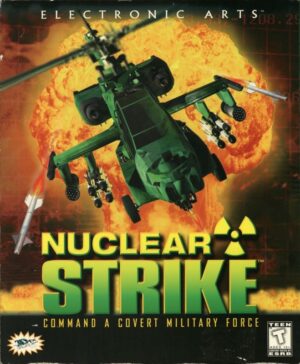Retro Replay Review
Gameplay
A Train 6 centers on creating and managing an extensive railway network, placing you at the helm of a major transportation company. From the outset, you are tasked with building track lines, designing efficient routes, and balancing train schedules to maximize profits. The core mechanics demand careful consideration of load capacities, trip frequencies, and turn-around times, ensuring that both passengers and cargo reach their destinations promptly.
(HEY YOU!! We hope you enjoy! We try not to run ads. So basically, this is a very expensive hobby running this site. Please consider joining us for updates, forums, and more. Network w/ us to make some cash or friends while retro gaming, and you can win some free retro games for posting. Okay, carry on 👍)
Beyond basic transportation, A Train 6 introduces additional layers of economic strategy. You can purchase and sell land as prices fluctuate, plan housing developments to boost passenger demand, and invest in local industry to generate new freight opportunities. This multi-faceted approach makes every decision matter; mismanaging land values or neglecting industrial growth can quickly derail your financial stability.
Optimizing the cost-effectiveness of your network is the key to long-term success. Each of the 40 train models has unique attributes—speed, capacity, maintenance costs per mile—that influence route planning. Choosing the right train for express routes versus bulk freight can make a significant difference in your bottom line. Regularly revisiting and adjusting schedules, especially in busy scenarios, keeps your company ahead of competitors.
Graphics
A Train 6 boasts a fully 3D rendered world, a substantial leap from its predecessors. Tracks, trains, and landscapes possess a tangible depth, with shadows and perspective adding realism to every scene. Switching camera angles provides both a macro and micro view of your railway empire, letting you zoom in on individual train cars or pull back for a bird’s-eye overview of sprawling track layouts.
The visual detail extends to the 80 available building types, each modeled with distinct architectural styles. Residential zones show evolving neighborhoods, while industrial complexes display animated smoke stacks and freight loading bays. This diversity of structures breathes life into the map, making each scenario feel like a living, breathing ecosystem rather than a static board game.
Train models stand out with polished textures and smooth animations. Wheels turn, pistons pump, and cargo containers shift realistically under load. Whether watching a high-speed express train slice through the countryside or a heavy freight unit lumber along an industrial spur, the graphic fidelity reinforces the weight and motion of these mechanical giants.
Story
While A Train 6 does not present a traditional narrative plot, its six distinct scenarios introduce unique challenges and objectives that serve as a form of storytelling. Each map comes with a historical or economic backdrop—post-war reconstruction, industrial boomtowns, or modern commuter sprawl—that shapes your strategic decisions. This scenario-driven structure keeps gameplay fresh by constantly shifting your priorities.
The progression system in each scenario gradually ramps up complexity. Early objectives focus on establishing basic passenger lines, teaching you core mechanics at a comfortable pace. As you meet milestones, new tasks emerge: connecting remote industrial districts, managing land speculation, or competing against rival companies for lucrative contracts. These evolving goals create a sense of narrative momentum without relying on cutscenes or scripted dialogue.
Player-driven stories naturally emerge from the economic sandbox. Perhaps you’ll specialize in high-speed luxury travel, carving out a niche market, or become the go-to freight hauler for heavy industry. Your successes and failures form a living history of your company’s rise (or fall), providing personal anecdotes to share long after the scenario has ended.
Overall Experience
A Train 6 offers a rich blend of strategic depth and economic simulation that challenges both veteran tycoons and aspiring railway magnates. The balance between transporting goods, managing land assets, and fostering industrial growth creates a satisfying feedback loop: efficient transport boosts city expansion, which in turn fuels more demand for your rail lines. This interconnectivity keeps you engaged for dozens of hours.
The learning curve is noticeable but rewarding. Early scenarios serve as a tutorial, while later ones demand careful attention to details like marginal cost analysis and land-value dynamics. The lack of hand-holding encourages experimentation, letting you discover more efficient layouts or profitable industrial pairings on your own terms. For those who enjoy fine-tuning systems, the payoff is immense.
Ultimately, A Train 6 succeeds as a comprehensive transport management simulation. Its robust toolset—ranging from 3D visuals to scenario-driven objectives—provides a deep, replayable experience. Whether you’re drawn by the crunch of numbers, the joy of watching sleek trains glide along your tracks, or the satisfaction of building a thriving transport empire, A Train 6 delivers an engrossing journey from first whistle to last station.
 Retro Replay Retro Replay gaming reviews, news, emulation, geek stuff and more!
Retro Replay Retro Replay gaming reviews, news, emulation, geek stuff and more!




Reviews
There are no reviews yet.